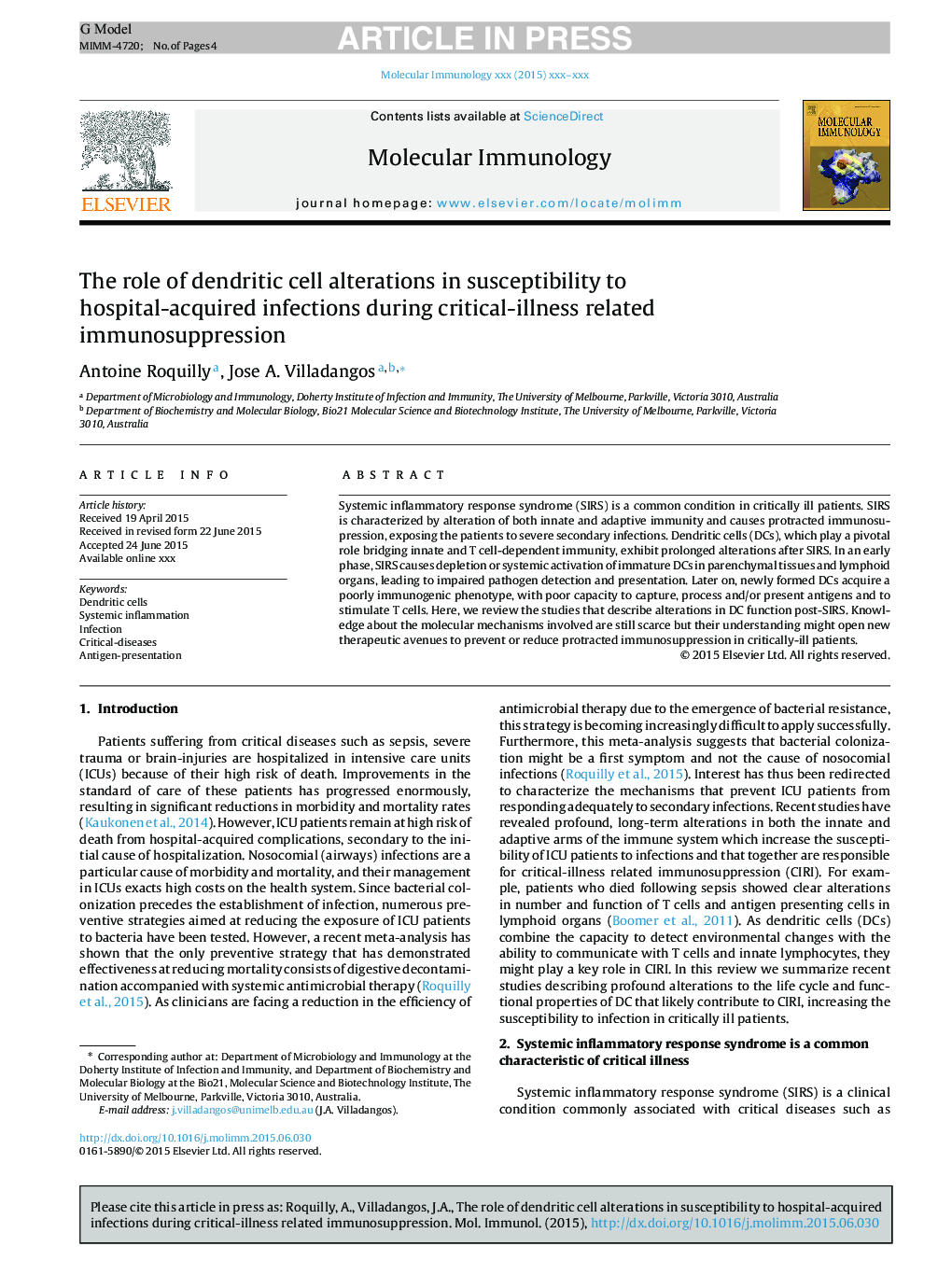| Article ID | Journal | Published Year | Pages | File Type |
|---|---|---|---|---|
| 5916398 | Molecular Immunology | 2015 | 4 Pages |
Abstract
Systemic inflammatory response syndrome (SIRS) is a common condition in critically ill patients. SIRS is characterized by alteration of both innate and adaptive immunity and causes protracted immunosupression, exposing the patients to severe secondary infections. Dendritic cells (DCs), which play a pivotal role bridging innate and T cell-dependent immunity, exhibit prolonged alterations after SIRS. In an early phase, SIRS causes depletion or systemic activation of immature DCs in parenchymal tissues and lymphoid organs, leading to impaired pathogen detection and presentation. Later on, newly formed DCs acquire a poorly immunogenic phenotype, with poor capacity to capture, process and/or present antigens and to stimulate T cells. Here, we review the studies that describe alterations in DC function post-SIRS. Knowledge about the molecular mechanisms involved are still scarce but their understanding might open new therapeutic avenues to prevent or reduce protracted immunosuppression in critically-ill patients.
Related Topics
Life Sciences
Biochemistry, Genetics and Molecular Biology
Molecular Biology
Authors
Antoine Roquilly, Jose A. Villadangos,
